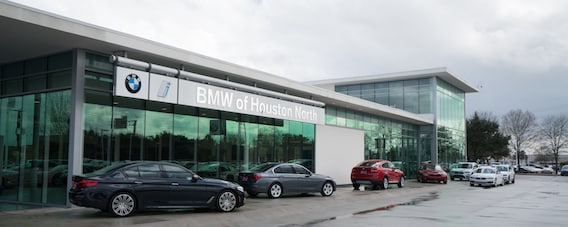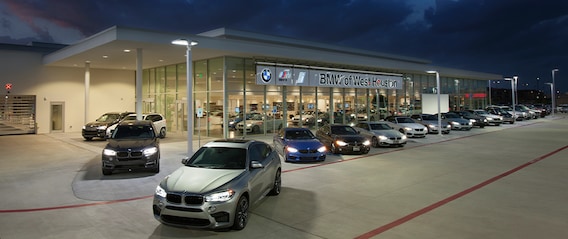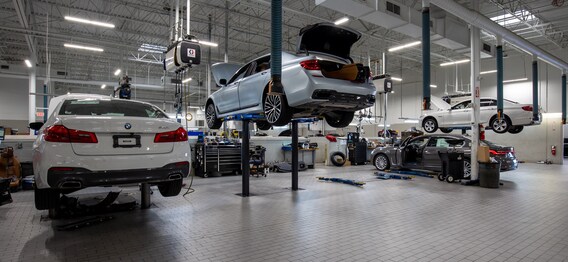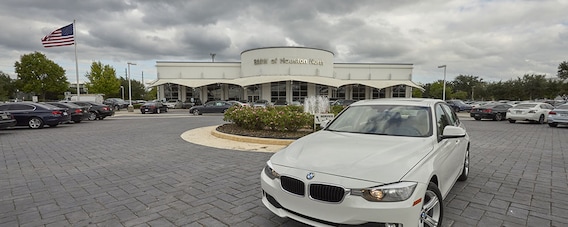This article originally appeared in the Sept. 28, 2015, issue of Sports Illustrated. You can subscribe to the magazine here.
Carlos Correa is the owner of 15 fedoras. They reside with him in precisely the type of apartment one might imagine a 20-year-old who has already become baseball's best shortstop would call home. It is a two-bedroom on the penthouse level of a Houston high rise, with an open floor plan, exposed concrete ceilings and immaculate modern furniture. If not for a few personal touches, like a trophy on a sideboard that reads JUNE 2015 ROOKIE OF THE MONTH, it could be a suite in a hotel catering to clients who like bottle service and electronic dance music. His walk-in closet overflows with size 13 shoes—he has every model of Yeezy, the Kanye West-designed sneakers that go for thousands on eBay—in addition to suits and other designer clothes. "I love going shopping," he says.
When Correa first viewed the apartment, not long after the Astros called him up from the minors on June 7, the real estate agent pointed out that it had a view of Minute Maid Park from each of its floor-to-ceiling windows, and then added, strangely, that if Correa saw that the park was engulfed in flames, he would know not to go in that day. Correa rented the place anyway. "I wake up every single day, look over there and am like, Let's get to work," Correa says.
AL wild-card game preview: Keuchel duels Tanaka as Astros face Yankees
Correa's schedule is always the same when the Astros are at home. He rises at 11; he watches something on the enormous TV that dominates his living room (The Walking Dead, The Blacklist, anything starring Kevin Hart); he drives his white BMW M5 to the ballpark, where he spends the next 10 to 12 hours; he returns home and is asleep by two. He does not, he says, indulge in any sort of a nightlife, and he does not understand why virtually every day for most of the season at least one person—a member of the media, a fan—pointed out to him that he could not yet legally buy a beer, which was the case until Sept. 22. "Never drank a beer before," he says. "I've had wine and champagne, but never a beer. I don't think that will happen. I don't know why people look forward to that."
Maybe the focus on beer is a way for people to attempt to connect their own life experiences with Correa's. For many, reaching drinking age represents a significant early accomplishment. Almost no one, though, ever reaches the status in any field that Correa already has in baseball. He is a phenom, a prodigy who continually exceeds lofty expectations.
The Astros recognized Correa's gifts earlier than most. In his first draft as the club's GM, in 2012, Jeff Luhnow made Correa the surprise No. 1 overall pick. Even so, on the eve of the shortstop's promotion to the majors, one member of Houston's analytically inclined front office—considering that Correa was about to become the game's youngest everyday player, and at an exceedingly demanding position—predicted that he would bat .250 over the rest of the season, with eight home runs and 10 steals, and provide an unlikely contender with a modest boost.
Correa hit his eighth homer in his 34th game and stole his 10th base in his 57th. By season’s end, he was batting .279, with 22 homers, 14 steals and a Wins Above Replacement—a Correan WAR, if you will—of 4.1. Just 19 hitters have ever had a better season’s WAR at so young an age, and each of them appeared in at least 19 more games than Correa’s 99. The list includes 10 Hall of Famers and many others for whom a bronze plaque is not hard to imagine: Ken Griffey Jr., Bryce Harper, Jason Heyward, Manny Machado, Alex Rodriguez and Mike Trout. Luhnow has guided his organization from laughingstock to the playoffs over the last four seasons in part by following a strictly probabilistic model, so you know he is not exaggerating when he says that Correa’s play so far falls into the 99th percentile of expected outcomes.
Despite his youth, Correa has never seemed to his teammates like a kid with his father's briefcase, attempting to project the appearance of maturity. His enthusiastic but focused demeanor is, they say, genuine. Early this season, while Correa was still in Triple A, Jose Altuve, the team's veteran second baseman, wrote Correa's name on a piece of athletic tape and affixed it over the empty locker next to his, as a faux nameplate. "I wanted him here," Altuve says. "I was saving his locker."
Correa (along with many of his shoes) now inhabits the locker, as he will for years to come. "I think he's the best player in this clubhouse, on the team," says Altuve, a three-time All-Star and last year's AL batting champion. Correa has earned even higher compliments as the industry attempts to contextualize him; the most frequent comp is that he is a combination of Alex Rodriguez, due to his size (6'4") and skill set, and of Derek Jeter, due to his natural unflappability. Such a comparison doesn't faze him—one sign that it might be accurate. "Oh, it's really humbling to listen to all the good stuff that people say about me," he says, smiling. "No, no pressure at all."
Playoffs (and playoff success) a long time coming for most of 2015 field
Watching Correa play can be startling, not because of any one skill in particular, but because he presents an amalgamation of attributes that don't seem as if they ought to go together. He is like a baseball gryphon. Players who hit with as much power as he does aren't supposed to also play shortstop, but there he is; shortstops who are 6'4" aren't supposed to also play the position well, but he does, thanks to his lithe frame and an arm that has been clocked at 97 mph. And 20-year-old shortstops aren't supposed to have the awareness or poise to do what he did on July 25. With two outs in the bottom of the ninth of a tie game against the Royals and a runner on third, fleet-footed Kansas City outfielder Alex Rios hit a bouncing grounder toward the hole between short and third that seemed a certain game-winner. Correa darted to his right, backhanded the ball and, in one motion—and with his momentum carrying him onto the leftfield grass—he leaped in the air and threw a rope to first, beating Rios by half a step. If that play reminds you of someone else when he was in his prime, you aren't alone. "When I made that play, obviously Jeter came to my mind," Correa says.
"You can't have enough versions of him around," says his manager, A.J. Hinch. "If you find another one, send him our way."
In many ways, Correa's story is the archetypal one of a golden boy whose gifts carried him from modest beginnings—he spent a teenage summer helping his father build parts of their house in Santa Isabel, Puerto Rico, cinder block by cinder block—to, literally, a penthouse. "The talent is so easy to see," says Jed Lowrie, who began the season as the Astros' shortstop and is now their third baseman. But it wasn't always—and anyway, the talent was only one ingredient in the improbable alchemy that produced him.
Scott Halleran/Getty Images
On the Friday morning before Labor Day weekend, the living area of Correa's apartment was filled with people, waiting beneath that exposed concrete ceiling for him to wake up. Frankie Higginbotham, a 48-year-old former minor leaguer who has become Correa's marketing manager and off-field swami—he lives in the apartment's second bedroom most of the time—was there with his wife. So was Correa's family, who visit from Puerto Rico often: his father, Carlos Sr.; his mother, Sandybel; his then 16-year-old brother, Jean Carlos; and his seven-year-old sister, Leibysand. They had come a long way.
People in Santa Isabel, a municipality of about 22,000 on Puerto Rico's southern coast, used to call Carlos Sr. "24/7," for the way he labored to support his family. His first construction shift began at 4:30 each morning. Then, for six hours in the middle of the day, he would work maintenance for the town's parks and recreation department. After that, another construction shift.
What Carlos Sr. did at night, though, earned him another nickname, one that wasn't quite so admiring: Hitler. From 8:30 until 10:30 every evening—always six days a week, sometimes seven—starting when his older son was in elementary school, Carlos Sr. would take him out to a local field and run him through baseball drills. Neighbors would reprimand him through their car windows. "They would be like, 'That's too much for a little kid!'" Carlos Jr. recalls. "Seven years old, eight years old, I'm taking hundreds of grounders and hundreds of swings."
What they didn't know was that the son wanted to be out there as badly as the father. Once Correa started playing baseball at five, ceaselessly flinging a ball at a wall even after bad caroms off tree roots blackened his eyes, the game was just about all he desired.
Still, Correa's father did push him. Baseball provided a glimmer of hope for the type of life that had been closed off to him from an early age. Carlos Sr. went to work at 13. When he was 16 and Sandybel was 14, they got married, believing their futures to be determined: He was going to be a construction worker, and he was going to support her, no matter what. Two years later, they had Carlos Jr.
"My parents taught me about the mistakes that they made," Correa says. "At the end of the day, it worked out pretty good for them, but it doesn't work out for most people. My dad never treated me like a little boy. He wanted me to be like him: a man at a young age who could go out and work for his family."
Carlos Sr. himself knew next to nothing about baseball. He had attended three practices when he was young, but he did not know how to field a ground ball. He had worked as a fisherman as a boy, and he would try to pick up grounders the same way he plucked crabs out of a river: with his palm down. The coaches would hit him balls in order to laugh at him, so he quit. When his son first played Little League—called Pampers League, in Puerto Rico—Carlos Sr. would listen closely to the coaches' instructions, and give the same ones during his nightly one-on-one sessions. He also studied the techniques of major leaguers. "He wanted me to do what they were doing on TV," says Correa. "Jeter, A-Rod, those guys playing shortstop."
Correa wanted to emulate them in other ways as well. When he was eight, he asked his parents, neither of whom speak English, to enroll him in a bilingual Baptist school. "I'm watching interviews on TV, and I would see the Latin guys with translators and stuff like that," he says. "I'm like, 'Dad, I don't want to be one of those guys. I want to speak for myself.'"
Can Royals repeat postseason magic? Big questions for the AL playoff field
By the time he reached high school, Correa had become one of the island's best young players, and he earned a scholarship to the Puerto Rico Baseball Academy and High School, founded in Gurabo by former major league pitcher Edwin Correa (no relation) in 2001. Carlos Jr.'s working hours began to rival those of his exhausted father. His days began at 5 a.m., and at night, without fail, he went to the ballpark to drill. People still came out to watch him, but now, instead of lobbing insults at Carlos Sr., they would cheer when his son crushed ball after ball. Professional scouts would watch too, more of them each year, but still Correa had doubters.
"People in high school, they were like, 'Oh, you're crazy, you're working too much,'" Correa says. "I said, 'I'm going to be a first-rounder.' They would laugh at me. They would invite me to parties. 'No, I'm working, because I want to be a first-rounder.' Never went to one."
Correa and his family had deprived themselves of so much—sleep and social opportunities were just the start of it—to give him the best possible shot of reaching his dream. Still, as he entered his senior year, there remained a real chance that professional baseball would take little notice of him. That had less to do with anything that he did than the place where he had done it.
Jim McIsaac/Getty Images
Puerto Rico was once a 110-mile-by-40-mile hotbed of major league talent. Hall of Famers Roberto Clemente, Orlando Cepeda and Roberto Alomar developed on the island, along with other stars like Pudge Rodriguez and Edgar Martinez. As recently as 2005, there were 34 Puerto Ricans on Opening Day rosters. By 2014, there were only 11, and only Carlos Beltran and Yadier Molina counted as genuine stars.
Many theories might explain the decline. One is that Puerto Rican children have an increasing number of options: Basketball, soccer and even volleyball have all grown popular, and as U.S. citizens, they can also more easily pursue traditional professions. Another oft-cited factor is the draft, with its strict age requirements and compensation structure, for which Major League Baseball made Puerto Ricans eligible in 1990. Suddenly the incentive of signing a big-money deal at 16 with a major league club was gone. What's more, the average Puerto Rican draft prospect had less high-level competitive experience and less leverage than his mainland counterparts. After just 87 games, Correa already ranks 12th in career WAR among players drafted directly from the territory.
While the island-born Francisco Lindor and Javier Baez were selected back-to-back at eighth and ninth overall in 2011, both had previously moved to Florida. Before his senior year, Correa received offers to do the same, to improve his exposure and draft stock. "I want to come out of Puerto Rico," he said. "I want to show people it can be done from here."
A young Cardinals scout named Mike Elias had been keeping tabs on Correa's development. In October 2011, Correa traveled to Jupiter, Fla., to play in a tournament at the Cardinals' and Marlins' shared spring training facility, and Elias happened to see him hit an opposite-field line drive that never rose more than 10 or 15 feet off the ground but carried down the rightfield line and struck the foul pole for a home run. "I can't remember ever seeing anyone doing that on a baseball field," says Elias. "Not just a 17-year-old. Anyone."
A few months later, Elias followed Luhnow, his boss in the Cardinals' scouting department, to Houston, and he couldn't get Correa off his mind. He saw Correa as much as he could and checked in often with Joey Sola, the Astros' Puerto Rico-based scout who puts 25,000 miles on his car each year, trying, mostly in vain, to find the island's next star. Every time Elias or Sola saw Correa, he seemed to do something spectacular. "Mike, I've never seen a kid coming out of the island like this," Sola reported.
Awards Watch: Final rankings for AL, NL MVP, Cy Young, Rookie of Year
By May 2012, a month before a draft in which the Astros would have the No. 1 overall pick, Elias had assigned Correa a 55 grade, on the 20 to 80 scale, for his ability to hit for contact, which projected to a .272 to .287 average in the majors; a 70 for power, which projected to 35 to 40 homers; and a flat 80 arm. "Graceful beast with large, rangy frame," Elias wrote in his report. "Physical presence along the lines of A-Rod or Cal Ripken Jr." Most insiders considered Correa a rising prospect, but not nearly a contender for the top pick—in part because of his home territory—yet Elias's reports convinced Luhnow that he ought to watch him work out in person, and to meet him and his parents.
"He was not the safe pick, because he wasn't at the top of most of the third-party lists," says Luhnow. "But you never know if you're going to get another chance to pick first, and you want a player that can have the highest possible impact. For us, that was him. We really felt the shortstop component of it gave Carlos the edge."
Although the recommended slot bonus for the first pick was $7.2 million, the Astros had made a predraft offer of $4.8 million. They not only wanted Correa, but they also wanted to save money in the newly instituted draft pool system to sign a later pick to an over-slot deal. (That pick, the 41st, turned out to be Lance McCullers, the Tampa high schooler who, as a rookie, went 6–7 with a 3.22 ERA.) Sandybel told her son that he ought to go to college—he had committed to Miami—rather than accept the deal. Carlos Sr., upon hearing his wife's suggestion, asked for a wheelchair. "Do you know how much construction I'd have to do to get $4.8 million?" Carlos Sr. reminded his son.
In the end, though, it was Correa's decision. "I knew for sure that I was going sixth to the Cubs," he says. "That slot value was $3.2 million. When the Astros made the offer of $4.8? With the chance to make history, as the first top pick out of Puerto Rico? It was a good deal. There was nothing to lose, when I came here from nothing."
Tony Gutierrez/AP
Correa's graduation from the Puerto Rico Baseball Academy was scheduled for a few days after he signed his contract, but well before he'd seen a dollar from it. He was not only the school's best player, but also its valedictorian. A family friend offered to take him shopping for a graduation suit, and Correa couldn't stop looking at himself in the mirror of an Express in Puerto Rico, at the way the slim black outfit transformed him. "I was like, 'Wow, I'm a professional,'" he says.
As he gazed into the mirror, Correa allowed himself to envision the years to come. How even though so many said he would soon grow too big to stick at shortstop, he would refuse to allow that to happen, and would follow a strict off-season diet to stay under 220 pounds, like a fighter perennially making weight. How he would give his autograph to most anyone who asked, with the same signature, quick and legible, that he had so often practiced in his school notebooks. And, yes, how he could soon afford to buy almost anything he and his family wanted, and all the shoes and the clothes that he had desired but never could have. From now on, Correa told himself, I will look nice.
At 11 a.m. on that Friday before Labor Day, Correa emerged from his bedroom to hugs and kisses from his awaiting family. In two hours, he was due to leave for another evening at the ballpark, but first, it was time for the Correas to enjoy each other. They joked and laughed, knowing that despite their sacrifices, there had never been a guarantee that this life would be theirs; no guarantee that all those nights ignoring their heckling neighbors would amount to anything; or that his disciplined childhood would only build his character, not destroy it.
"We think that Carlos has always had an angel watching over him," said Sandybel, as her son disappeared into his bedroom. He reemerged wearing Wayfarer-style sunglasses and jeans with elastic cuffs at the ankles, all the better to show off his sneakers, gold special-edition Adidas with metal toe caps, designed in honor of C3PO. His combination of talent, diligence and charisma had brought him this far. Now it was time to go to the ballpark—which was still standing, the penthouse's view confirmed—to see where it would take him next.

New BMW Cars For Sale In Houston TX Advantage BMW Midtown

BMW of Houston North BMW Dealership Near Me in Houston TX

BMW Service at BMW of West Houston in Katy TX

About Momentum BMW in Houston New BMW amp Used Dealership

BMW Dealership Houston TX BMW Sales Specials Service BMW

New BMW Cars amp SUVs for Sale in Houston TX Momentum BMW

AutoNation BMW of Houston North Project Portfolio FabriTec

Used 15 BMW X15 xDrive150i For Sale in Houston TX Alpine White

15 BMW 15 Series

15 BMW X15 sDrive15i For Sale near Houston TX Stock M15G15

Used BMW Vehicles for Sale in Houston TX Momentum Volvo Cars

BMW Service Center in Houston TX BMW of Houston North

New BMW Cars For Sale In Houston TX Advantage BMW Midtown

BMW Dealership Spring TX BMW Sales Specials Service BMW

New BMW Cars amp SUVs for Sale in Houston TX Momentum BMW